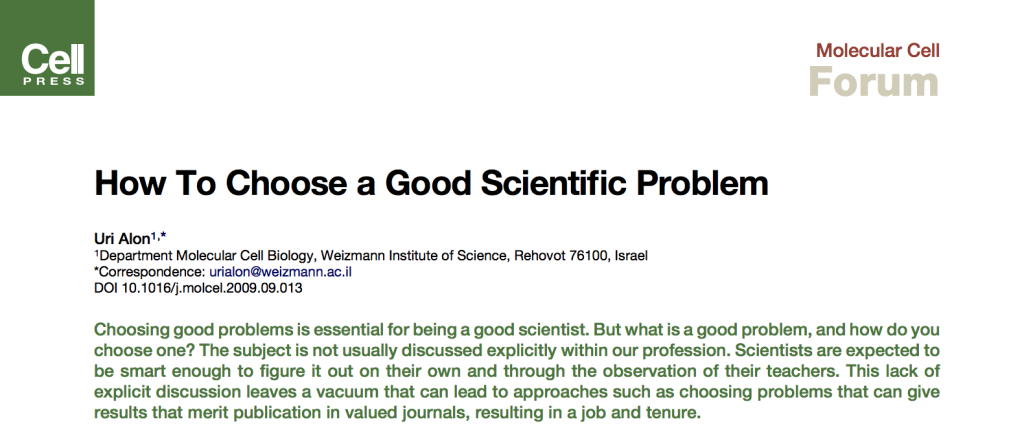How does a scientist choose a project or a scientific problem?
In E O Wilson’s auto-biography Naturalist he reveals his motivation in becoming a myrmecologist (specialist in ants): As a young boy he blinded himself with the spine of a poisonous fish and after surgery and treatment he was left with 20/10. He lost his stereoscopic vision but was able to see fine print and small hairs on the bodies of insects.
“I noticed butterflies and ants more than other kids did, and took an interest in them automatically.”
His reduced ability to observe mammals and birds led him to concentrate on insects ultimately leading him down the path to becoming the world’s leading expert on ants (among many other topics including biodiversity and sociobiology).
If he had not blinded himself, would he had chosen these same scientific problems to research? Perhaps not.
“The projects that a particular researcher finds interesting are an expression of a personal filter, a way of perceiving the world. This filter is associated with a set of values: the beliefs of what is good, beautiful, and true versus what is bad, ugly, and false. Our unique filter is what we bring to the table as scientists.” -Uri Alon
Uri Alon, a Professor and Systems Biologist at the Weizmann Institute of Science, gives us his perspective on the matter in this excellent article which you can read here:

Share this:






































